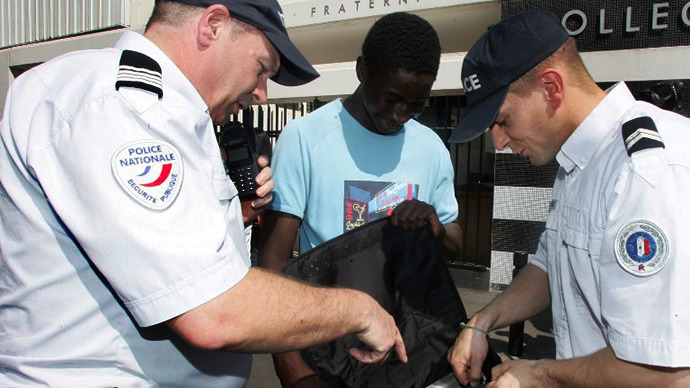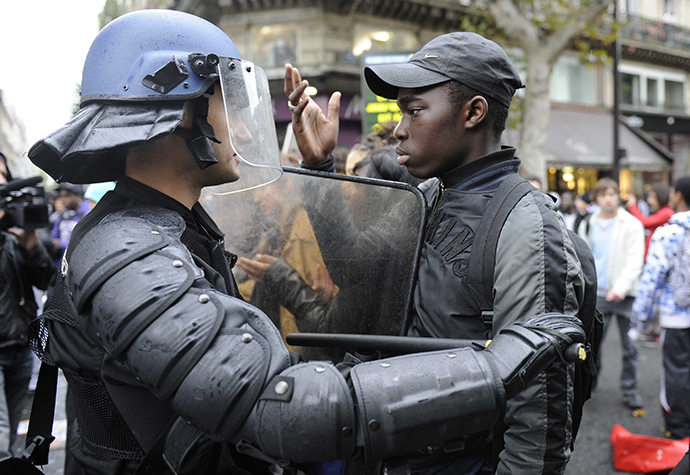Don’t talk ‘tu’ suspects like that: French police ordered to be polite

French police have received official orders that they are no longer allowed to address suspects using the informal and familiar ‘tu’ (‘you’ singular), but should at all times use the more formal, respectful ‘vous’ (‘you’ plural).
The law enforcement officers have been explicitly banned from
speaking to any members of the public using ‘tu,’ which is
normally used to address friends, family or younger children,
according to a new 33-article code of conduct that comes into
effect next month.
Using ‘tu’ to a stranger can be considered derogatory or
impolite. However, French police are prone to employing the term
when speaking to suspects.
“For many police officers, using the familiar ‘tu’ is in their
DNA... it carries an implied threat,” an anonymous youth told
local news radio channel France Info. “It’s the kind of thing
that can quite naturally ignite a violent reaction and it’s always
the youths who come off badly.”
“Quite rightly a lot of young people refuse to be spoken to this
way,” he added.

Instead, officers must now use ‘vous,’ a polite form of
address generally reserved for addressing those who are older, less
familiar or of higher standing.
The new code was proposed by French Minister of the Interior Manuel
Valls, who hopes it will help the police “improve relations”
with the population as a whole, which he believes should be central
to police training, France Info reported.
Article 12, which deals with the police's relationship with the
French population, commands that officers “behave in all
circumstances in an exemplary fashion and with complete respect for
the dignity of individuals,” in the hope that it will inspire
greater respect in return.
However, given the nature of police work, especially in areas
deemed to be inhabited by ‘troubled youths,’ this may mean
that officers have to deal with unpleasantness or impoliteness from
suspects, who may not reciprocate the politeness.
An unnamed officer told the radio station that using ‘tu’
was “an indispensable tool for asserting authority.”
The new code of conduct also instructs French policemen to give
assistance “within the limits of the means at his disposal,”
and not to carry out identity checks based on physical
characteristics or distinctive signs.














